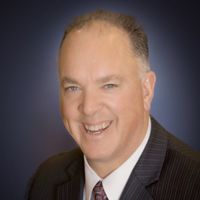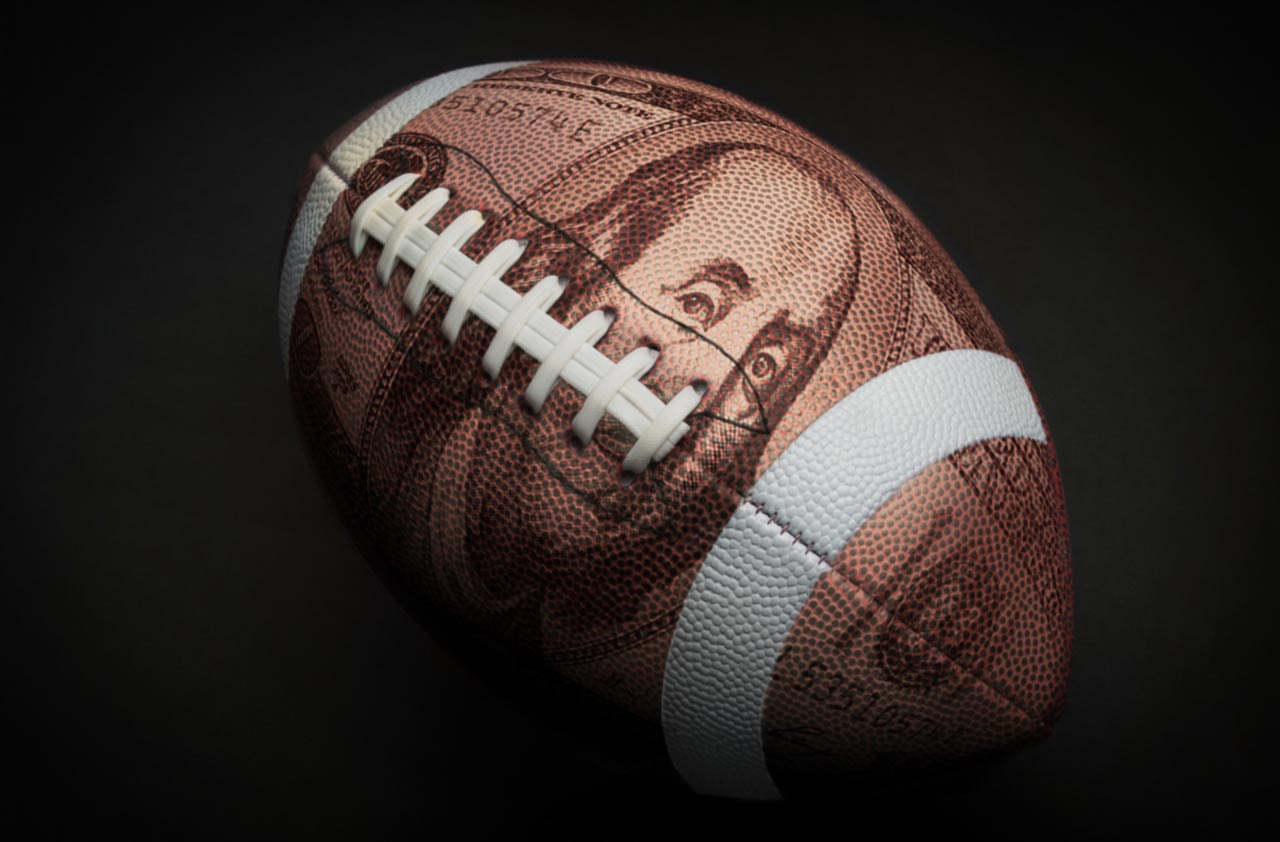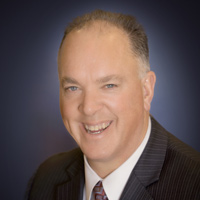NFL Superstars' Financial Fumbles Hold Lessons for Rest of Us
Just because you're rich doesn't mean you don't make money mistakes. In fact, it may mean you make bigger ones.


Profit and prosper with the best of Kiplinger's advice on investing, taxes, retirement, personal finance and much more. Delivered daily. Enter your email in the box and click Sign Me Up.
You are now subscribed
Your newsletter sign-up was successful
Want to add more newsletters?

Delivered daily
Kiplinger Today
Profit and prosper with the best of Kiplinger's advice on investing, taxes, retirement, personal finance and much more delivered daily. Smart money moves start here.

Sent five days a week
Kiplinger A Step Ahead
Get practical help to make better financial decisions in your everyday life, from spending to savings on top deals.

Delivered daily
Kiplinger Closing Bell
Get today's biggest financial and investing headlines delivered to your inbox every day the U.S. stock market is open.

Sent twice a week
Kiplinger Adviser Intel
Financial pros across the country share best practices and fresh tactics to preserve and grow your wealth.

Delivered weekly
Kiplinger Tax Tips
Trim your federal and state tax bills with practical tax-planning and tax-cutting strategies.

Sent twice a week
Kiplinger Retirement Tips
Your twice-a-week guide to planning and enjoying a financially secure and richly rewarding retirement

Sent bimonthly.
Kiplinger Adviser Angle
Insights for advisers, wealth managers and other financial professionals.

Sent twice a week
Kiplinger Investing Weekly
Your twice-a-week roundup of promising stocks, funds, companies and industries you should consider, ones you should avoid, and why.

Sent weekly for six weeks
Kiplinger Invest for Retirement
Your step-by-step six-part series on how to invest for retirement, from devising a successful strategy to exactly which investments to choose.
It isn’t much of a surprise anymore when you hear that a former NFL star is suffering from serious financial woes.
It used to be you’d wonder how someone who made millions of dollars every year could lose it all so fast. Now we know: They spend too much. They have expensive divorces. They get bad advice and make terrible deals.
And for many, their careers are short — just three to six years.
From just $107.88 $24.99 for Kiplinger Personal Finance
Become a smarter, better informed investor. Subscribe from just $107.88 $24.99, plus get up to 4 Special Issues

Sign up for Kiplinger’s Free Newsletters
Profit and prosper with the best of expert advice on investing, taxes, retirement, personal finance and more - straight to your e-mail.
Profit and prosper with the best of expert advice - straight to your e-mail.
Some epic fails by NFL stars
But even seasoned superstars can run into trouble. In 2010, John Elway, the Denver Broncos’ Super Bowl-winning quarterback and current general manager, was among dozens of investors who got caught up in a Ponzi scheme and lost millions. When Cleveland Browns quarterback Bernie Kosar filed for bankruptcy in 2009, he owed $9.7 million to the bank for failed real estate deals, $3 million to his ex-wife, and thousands more in personal loans. Even the late, great quarterback Johnny Unitas, beloved in Baltimore, filed for bankruptcy in 1991. And just last fall, 60 Minutes reported that several players — including Ray Lewis and Terrell Owens — had lost millions after investing in a failed electronic-bingo-casino-and-entertainment complex in Alabama.
In other words, these guys make mistakes just like the average Joes who fill up stadiums to watch them. They just do it on a much grander scale.
Where they go wrong
Just like doctors, dentists and construction workers, athletes hang with their own, and they tend to invest in the same ways. They tend to like businesses that bear their names, raise their profiles and feed their egos — and when they do make an investment, they tend to go big, putting all their money into car dealerships, restaurants and sports franchises. Some of those work out … but a lot of them don’t.
Pro football players are good at what they do, but clearly many aren’t getting the right advice when it comes to planning for the future. If an NFL star walked into my office today and asked me for help, I’d sit him down and start asking questions.
- Have you worked out a plan for protecting your assets as well as growing them?
- Have you put together a trust?
- Have you thought about your future medical expenses and all those injuries that may have taken a toll on your body and your brain?
- Do you look at the real returns of investments versus what a friend or the stock market ticker is telling you?
And while we were chatting, I’d put the focus on these three points:
- Inflation: This is a particularly important factor for someone who has become accustomed to and hopes to maintain an upscale lifestyle. To keep up, he’ll have to double his income every 10 to 15 years, which won’t be easy once those big paychecks stop. But there are things we can put in place to make it happen.
- Taxes: It’s imperative to take taxes into consideration when planning for the long term, especially when so much money is involved. I’d suggest creating a family foundation, with money the player can tap into while he’s alive but that also goes on into perpetuity to support philanthropic causes he believes in. He can involve his family members, giving his kids a chance to learn about giving. And he can give the foundation his name!
- Guaranteed income: Restaurants fold, stocks drop and endorsement deals can dry up, but there are ways to be sure his money lasts as long as he does, including different kinds of annuities.
These are tough topics for young men who’ve dreamed of laying down cash for a new car or helping friends and family get past their money problems. They certainly aren’t designed to inflate an already healthy ego. But if these guys want to come out of their careers with more than memories, they’d be wise to find an adviser who will help them tackle a plan that’s less about risk and more about long-term rewards.
Lessons for the rest of us
Fans can learn some lessons from their favorite superstars’ high-profile fumbles. After all, they’re not the only ones who have to overcome setbacks. And we’ll all have to deal with similar issues in retirement.
Find a coach you can trust: Your adviser can help you put together a game plan that addresses inflation, taxes and income needs on your level of play.
Kim Franke-Folstad contributed to this article.
Any comments regarding safe and secure investments and guaranteed income streams refer only to fixed insurance products. They do not refer, in any way to securities or investment advisory products. Fixed insurance and annuity product guarantees are subject to the claims-paying ability of the issuing company and are not offered by Global Financial Private Capital.
This material is for informational purposes only. It is not intended to provide tax, accounting or legal advice or to serve as the basis for any financial decisions. Individuals are advised to consult with their own accountant and/or attorney regarding all tax, accounting and legal matters.
Profit and prosper with the best of Kiplinger's advice on investing, taxes, retirement, personal finance and much more. Delivered daily. Enter your email in the box and click Sign Me Up.

Don Bergis is an Investment Adviser Representative (IAR) and the founder of Authentikos Advisory, a full-service fiduciary firm focused on the protection and growth of client assets toward and through retirement.
-
 Dow Hits New High Ahead of January Jobs Report: Stock Market Today
Dow Hits New High Ahead of January Jobs Report: Stock Market TodayA weak reading on December retail sales was in focus ahead of Wednesday's delayed labor market data.
-
 7 Bad Tax Habits to Kick Right Now
7 Bad Tax Habits to Kick Right NowTax Tips Ditch these seven common habits to sidestep IRS red flags for a smoother, faster 2026 income tax filing.
-
 The New Plan to End Surprise Taxes on Social Security 'Back Pay'
The New Plan to End Surprise Taxes on Social Security 'Back Pay'Social Security Taxes on Social Security benefits are stirring debate again, as recent changes could affect how some retirees file their returns this tax season.
-
 Tied Up in Knots Over a Concentrated Stock Position? This Strategy Will Help You Unravel
Tied Up in Knots Over a Concentrated Stock Position? This Strategy Will Help You UnravelIf you've built significant wealth through stock in one company, deciding your next move may be petrifying. Use this decision-making framework to get unstuck.
-
 How to Put Your IRA to Work for Change and to Help the Next Generation, Courtesy of an Investment Adviser
How to Put Your IRA to Work for Change and to Help the Next Generation, Courtesy of an Investment AdviserUnhappy with the environmental and social impact of your investments? An impact fund that aligns your portfolio with your values could make all the difference.
-
 A Wake-Up Call and a Healthy Dose of Terror: How to Survive Your First Days in Prison
A Wake-Up Call and a Healthy Dose of Terror: How to Survive Your First Days in PrisonThis young man needed to be scared straight after his mother expressed her fear that he was on a path to prison. Hearing these eight do's and don'ts worked.
-
 I'm a Financial Adviser: Here's How to Help Derisk Your Portfolio in 2026
I'm a Financial Adviser: Here's How to Help Derisk Your Portfolio in 2026Signs of a possible economic slowdown call for balanced derisking that locks in portfolio gains without sacrificing future upside. Here's a step-by-step guide.
-
 The 5 Biggest Tax Mistakes New Retirees Make in the First 5 Years
The 5 Biggest Tax Mistakes New Retirees Make in the First 5 YearsMaking the wrong tax moves in the first few years of retirement can be costly for you and your heirs. These are the five biggest mistakes to avoid.
-
 Inherited an IRA? Don't Fall Into the 10-Year Tax Trap
Inherited an IRA? Don't Fall Into the 10-Year Tax TrapRules on inherited IRAs have tightened, and most non-spouse beneficiaries must empty the pot in 10 years or face stiff penalties. That calls for an action plan.
-
 I'm a Retirement Psychologist: This Is Why a Supportive Marriage May Matter More Than Money in Retirement
I'm a Retirement Psychologist: This Is Why a Supportive Marriage May Matter More Than Money in RetirementIn retirement, health is as important as finance. And research shows people in supportive marriages have fewer issues with weight, metabolism and self-control.
-
 How Money Guilt Holds Women Back (and How You Can Send It Packing)
How Money Guilt Holds Women Back (and How You Can Send It Packing)Women shouldn't let guilt limit the way they manage their hard-earned wealth. It's time to separate emotion from financial decision-making.